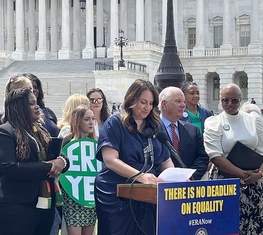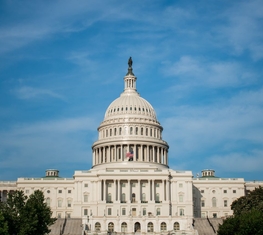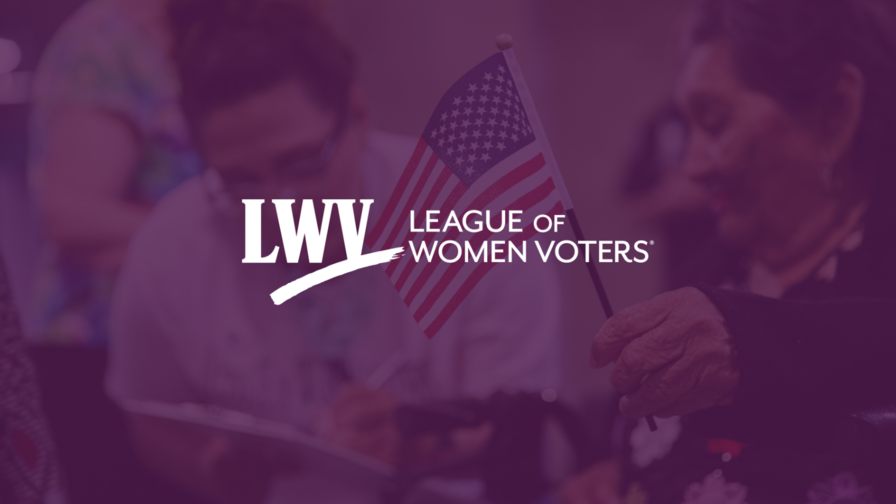Where is the Deferred Action for Childhood Arrivals (DACA) Program Now?
The Deferred Action for Childhood Arrivals (DACA) program protects certain people who immigrated to the United States as children from being deported. Since the program began in 2012, DACA has allowed more than 800,000 people to remain in the US, where they attend school, work, and raise their families as vital members of our communities.
The History of DACA
Since 2001, Congress has introduced and failed to pass variations of the DREAM (Development, Relief, and Education for Alien Minors) Act. This legislation is essential to provide a path to citizenship for “Dreamers,” a group of diverse, young immigrants who were brought to the United States without documentation and qualify for the provisions in the DREAM Act.
Lack of congressional action led the executive branch to introduce a temporary solution to protect these individuals in 2012, when the United States Department of Homeland Security (DHS) released a memo allowing certain undocumented young people who came to the US as children to request “deferred action," protecting them from being deported for a two-year period. The memo also enabled recipients to request authorization to work in the US. This policy became known as Deferred Action for Childhood Arrivals (DACA). DACA recipients are considered “lawfully present” in the US, but the policy does not provide lawful status or a pathway to citizenship.
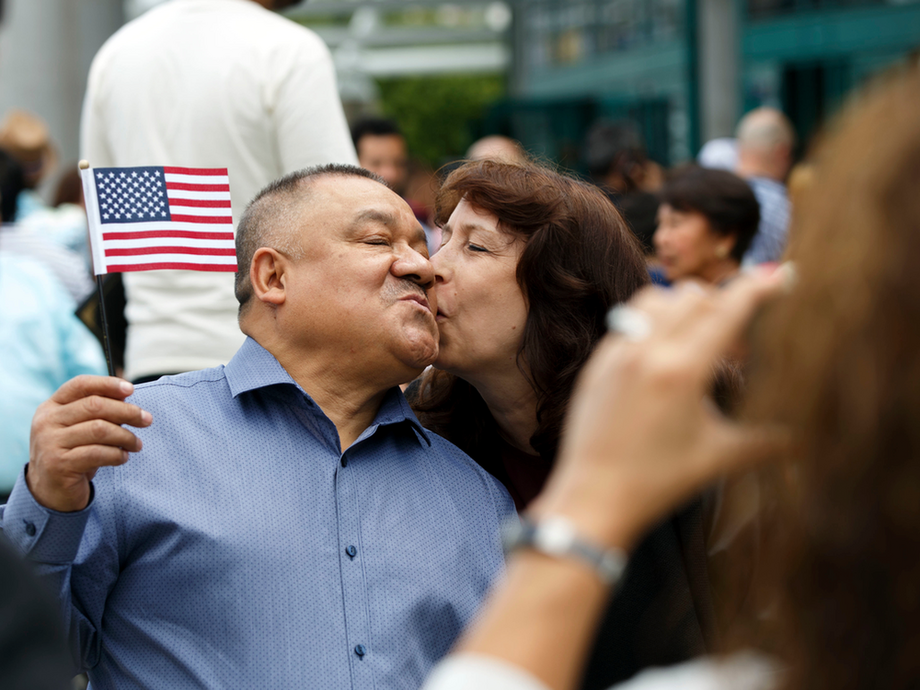
To qualify for DACA, an individual must:
- Have come to the US before the age of 16;
- Have been born on or after June 16, 1981;
- Have continuously resided in the US since June 15, 2007;
- Have been physically present in the US, without lawful immigration status, on June 15, 2012;
- Currently be enrolled in school, have graduated from high school or obtained a general education development (GED) certificate, or be an honorably discharged veteran of the US Armed Forces or Coast Guard; and
- Have not been convicted of a felony, significant misdemeanor, or three or more misdemeanor offenses.
In 2017, after multiple states wrote to the US Attorney General requesting the removal of the 2012 DACA memo, the Attorney General sent a letter to DHS advising that DACA was established without proper statutory authority. In September 2017, DHS issued a memo that reversed the DACA policy and specified that no new initial DACA applications would be processed. Recipients whose DACA status would have expired before March 6, 2018, would have one month to file renewal requests.
In June 2020, the US Supreme Court ruled that the 2017 termination of DACA was unlawful, restoring the program. Then in July 2021, the US District Court for the Southern District of Texas found that the 2012 DACA memo was unlawful and prohibited DHS from processing first-time DACA applications but temporarily allowed current DACA recipients to renew their requests.
The Present and Future of DACA
In August 2022, DHS published the DACA Final Rule, a regulation to strengthen the DACA program while it undergoes legal challenges. This rule, proposed to protect and enhance DACA, considered more than 16,000 comments received during a public comment period. The rule affirms that current DACA recipients’ deferred action, employment authorization, and advance parole — allowing them to travel outside the US— continue to be valid; maintains that DACA recipients are considered “lawfully present”; and upholds the DACA application process and eligibility criteria.
In October 2022, the US District Court for the Southern District of Texas extended its 2021 ban and partial stay to the DACA Final Rule, meaning that first-time DACA applications, including individuals whose DACA lapsed for more than one year, will not be processed. However, current recipients can maintain their receipt of DACA and renew their grants and accompanying authorizations. The District Court is currently considering the legality of the DHS DACA Final Rule.
A Problem for Health Coverage and Other Benefits
While DACA recipients pay taxes and are considered “lawfully present” in the US, they have historically been ineligible for federally funded health coverage, including Medicaid, the Children’s Health Insurance Program (CHIP), and Affordable Care Act (ACA) health insurance Marketplaces. This has resulted in higher uninsured rates among DACA recipients.
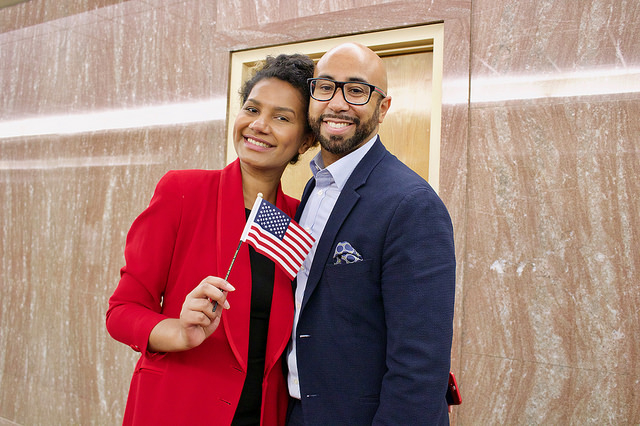
It is especially unconscionable to exclude DACA recipients from accessing vital health care benefits as the US has grappled with the health and economic consequences of the COVID-19 pandemic, during which DACA recipients played a disproportionate role in response and recovery. As of 2021, approximately 343,000 DACA recipients were employed in industries deemed essential by DHS, including an estimated 34,000 in health care.
On April 13, 2023, President Biden announced that the Department of Health and Human Services (HHS) will soon propose a rule amending the definition of “lawful presence” for Medicaid and ACA coverage to include DACA recipients. This significant advancement is predicted to reduce uninsured rates among DACA recipients, improving access to health care services and preventing additional medical expense-related financial hardships.
A Permanent Solution
The League of Women Voters believes that immigration policies should promote the reunification of immediate families and meet the economic needs of the US. In transitioning to a reformed system, the League supports granting legal status to individuals already living in the country without legal permission.
Since the 111th Congress (2009-2011), including as recently as 2022, the League has lobbied for legislation to provide permanent protections and a path to citizenship for young undocumented immigrants who came to the US as minors. “There should be no doubt that these individuals are worthy of protection from deportation and a path toward permanent status and citizenship,” a recent memo to Congress stated. “People who are protected by DACA, their families, and their communities deserve the peace of mind to build their lives and futures.”
Get involved in new citizen voter registration and other efforts to empower members of your community by joining your local League!
Federal immigration policies affecting people who’ve called this country home for years have faced countless, needlessly convoluted changes. For over a decade, DACA recipients and their families have lived with the burden of regularly reapplying for deferred action and other authorizations and the fear that precarious and politicized policies will force them to leave their homes. As of December 2022, there were nearly 580,000 active DACA recipients in the US living this reality.
DACA was always intended to be temporary until Congress passed a permanent solution, as only Congress can establish legal immigration status and a permanent path to citizenship. It is well past time for Congress to provide permanent legal protection for the Dreamers who’ve given so much to this country.
What You Can Do
- Follow the League of Women Voters’ materials and advocacy work on immigration;
- Join your local League to learn about and support local and state initiatives to protect immigrant members of your community; and
- Learn more about immigration rights and policies from organizations like:
- American Civil Liberties Union (ACLU);
- Center for American Progress (CAP);
- CASA;
- Immigration Hub;
- Leadership Conference on Civil and Human Rights;
- League of United Latin American Citizens (LULAC);
- National Immigration Law Center (NILC); and
- UnidosUS
The Latest from the League
WASHINGTON – Today, the League of Women Voters CEO Virginia Kase Solomón released the following statement in support of the legislation to protect DACA recipients:
The League of Women Voters strongly endorses this common-sense bipartisan legislation, and we stand ready to work with lawmakers to see it become law.
We commend President Biden for prioritizing the reunification of thousands of families separated by the previous administration.
Sign Up For Email
Keep up with the League. Receive emails to your inbox!
Donate to support our work
to empower voters and defend democracy.

